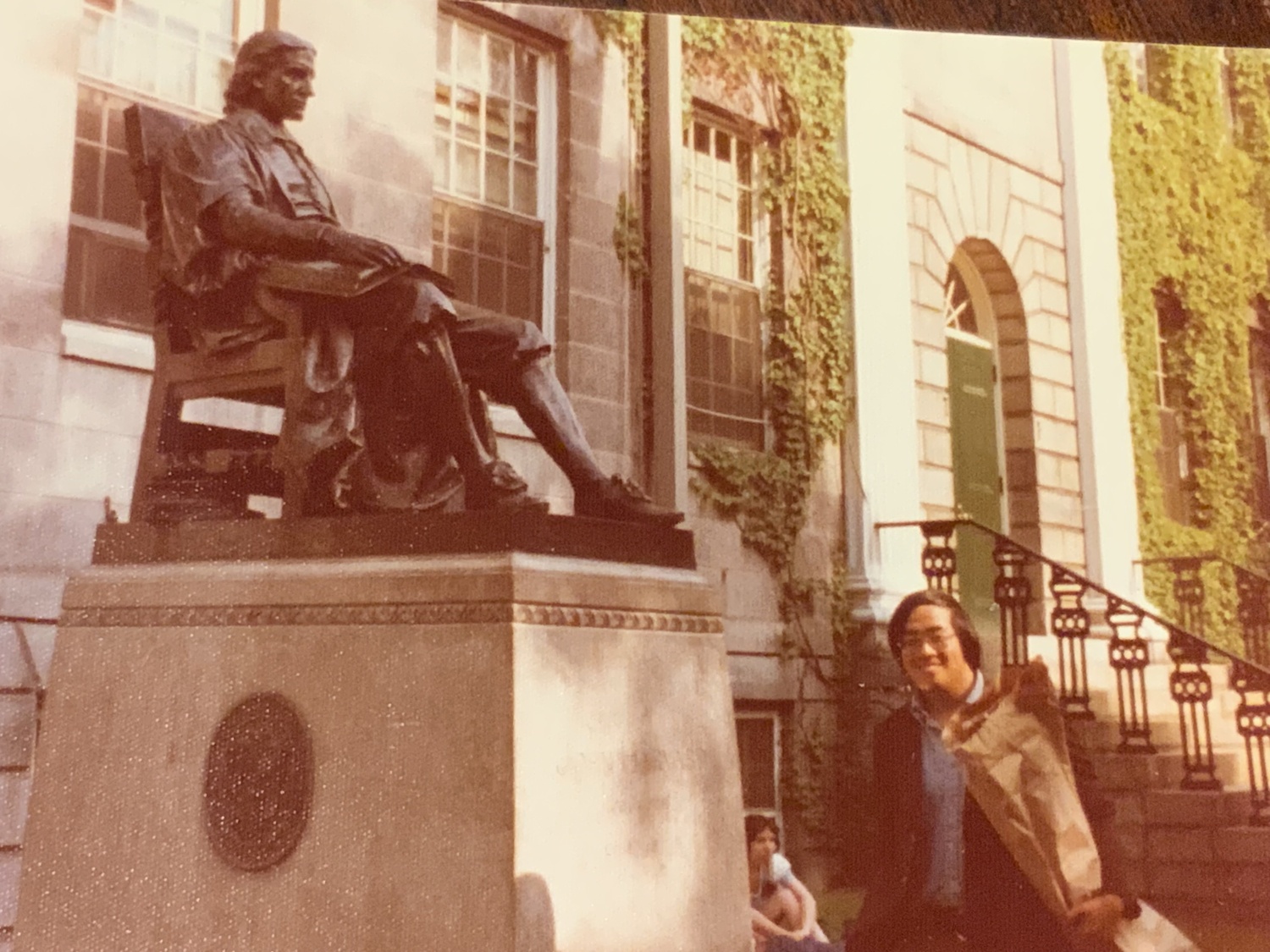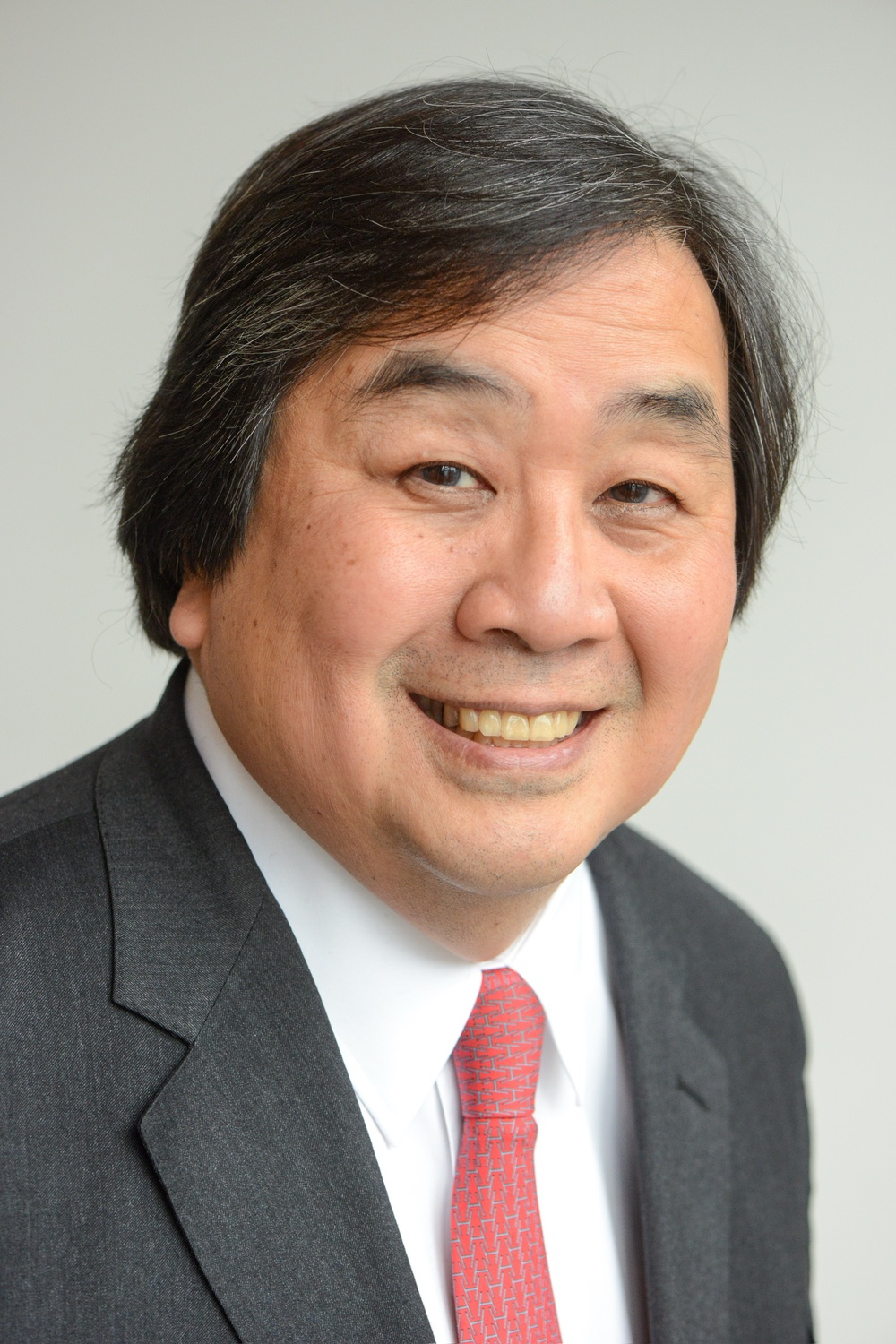
News
Summers Will Not Finish Semester of Teaching as Harvard Investigates Epstein Ties

News
Harvard College Students Report Favoring Divestment from Israel in HUA Survey

News
‘He Should Resign’: Harvard Undergrads Take Hard Line Against Summers Over Epstein Scandal

News
Harvard To Launch New Investigation Into Epstein’s Ties to Summers, Other University Affiliates

News
Harvard Students To Vote on Divestment From Israel in Inaugural HUA Election Survey
‘Be Here Now’: Inside Harold Koh’s Journey From Pinball to Politics

It wouldn’t be wrong to call Harold H. Koh ’75 a one-draft wonder.
After two consecutive all-nighters, Koh wrote the final chapter of his senior government thesis in the hours before it was due, enlisting his roommate, John W. Treece ’75, to type as he penned a draft by hand.
“It was pretty incredible, even mesmerizing, to watch his ability to churn out a first draft that easily passes as a final product,” Treece said. “He was that good.”
Once Treece left, Koh pounded out the remaining pages on his rickety Royal typewriter, dashed to the Holyoke Center, and submitted the thesis with 15 minutes to spare.
“I thought, ‘Oh, that’s terrible,’” Koh said. “But anyway, it all turned out well.”
“Well” was an understatement. Koh’s thesis — on the South Korean role in the U.S.-Japan-Korea trilateral relationship — was awarded summa cum laude, the highest possible distinction and the first in the Government Department in years.
The accolades did not stop there.
After graduating from Harvard, where he lived in Mather House, Koh won a Marshall Scholarship and studied at the University of Oxford, then earned his J.D. from Harvard Law School in 1980. Before joining Yale’s law faculty in 1985, Koh clerked on the D.C. Circuit and for Supreme Court justice Harry A. Blackmun, Class of 1929, as well as working at the prestigious law firm Covington & Burling and the Department of Justice.
At Yale, Koh became a professor of international law and a leading voice in shaping the future of global legal norms, serving in both the Clinton and Obama administrations. He became dean of Yale Law School in 2004, leaving when Obama appointed him as a legal adviser to the U.S. Department of State.

But Koh still bled Crimson, serving a six-year term on the Harvard Board of Overseers, the University’s second-highest governing body.
The frenetic pace that has carried Koh from Yale to Washington, and countless stops in between, found its roots in his time at Harvard, when he pivoted from majoring in Physics to Government and often churned out papers in the dead of night on his typewriter.
Yet friends recalled him as an affable teenager — Koh was only 16 when he arrived at Harvard — already adept at navigating diverse social situations.
Treece said from his early days in Cambridge, Koh had a “Bill Clinton-like recall” for everyone he met, while his fellow roommate Clifton G. “Cliff” Lewis ’75 said that Koh possessed a “Robin Williams-quick” wit.
“He was very outgoing, interested in people, interested in their worlds,” said Catherine E.M. Sullivan ’75, a fellow resident of Mather House. “He could always collect a story about you, and he could tell you stories about anybody.”
On any given night, Koh could be found playing on the Mather House pinball machine and then whipping up a 15-page essay. And if he wasn’t chasing high scores, he could be found singing with the Harvard-Radcliffe Collegium Musicum and trekking across the Charles to watch Marx Brothers movies, according to roommate David S. Edgell ’75.
Yet that easygoing charm masked a scholarly intensity he hadn’t fully realized when he first set foot on campus.
He began as a Physics concentrator, but stumbled upon an East Asian politics class in the fall of his sophomore year — and never looked back.
The shift felt almost predestined: Koh was the son of Kwang Lim Koh, a former Korean diplomat to the United States who was the first Korean to receive a master’s and doctorate degree from Harvard Law School, while his mother was one of the first women to earn a Ph.D. in sociology from Boston University.
“It seemed like an accident,” Koh said of his switch to concentrating in government. “But for all those reasons, I was very interested in politics, political side, it was just much more natural to me.”

Even as Vietnam War protests erupted steps from his dorm, Koh largely avoided the activist fray and engaged little on political matters, even with his closest friends.
“Whenever politics came up, we just nodded and agreed and then moved on to ‘when’s the next Glee Club rehearsal?’” Lewis, Koh’s roommate, said.
While Koh said Harvard didn’t shape his core values, he said he found friends who already had “very strong moral centers.” And he did learn what not to emulate: After some professors rebuffed his interview requests for a junior-year paper, he vowed to never shut down a curious student the way they did.
“These guys were very arrogant, and it turned me off,” he said. “I just thought, ‘you don’t have to do that — why do you make people feel small?’” Koh said.
Koh said the most important book he read as an undergraduate student wasn’t a government treatise but the countercultural guide “Be Here Now” — a 300-page tome that simply repeats “Be Here Now” in wild, swirling fonts. It was assigned by a Government tutor who, Koh joked, was “stoned out of his mind.”
“I thought, ‘what a complete waste of time,’” he said.
Still Koh said he leaned on that simple mantra in the race to submit his thesis — and today when speaking before students and lawyers.
“When I would be in some stressful legal situation, it would suddenly occur to me — just block out these other extraneous things,” he said. “‘Be here now,’ just give it everything you got.”
But, with what his friends might call characteristic humility, Koh claimed his success was less pre-ordained — and a lot more like a game of Mather House pinball.
“It’s very random, the way the ball bounces, but it’s sort of something about life — timing counts, anticipation counts, understanding the patterns counts,” Koh said. “And then there’s a lot of luck involved.”
—Staff writer Amann S. Mahajan can be reached at amann.mahajan@thecrimson.com. Follow her on X @amannmahajan.
—Staff writer Elise A. Spenner can be reached at elise.spenner@thecrimson.com. Follow her on X @EliseSpenner.
Want to keep up with breaking news? Subscribe to our email newsletter.
